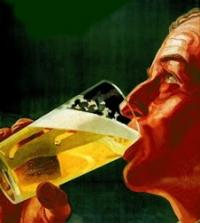As I go down that dark road of water additions I find myself asking a question, Bru'n water shows me the total amount of acid to use to get my mash PH to what I want but it says "see sparge sheet" for the sparge water. Do I need to adjust the sparge water at all?
Dan
what kind of sparge do you do?
what is your water like? high in bicarbonate?
eta: for me, I don't think I need to treat my sparge water for a few reasons:
1) my water is low in bicarb
2) I batch sparge
3) my batch sparges are small so the water:grain ratio in my sparge is really low.
Ken would answer this differently. His water has a lot of bicarb. Because of this I think he needs to neutralize some of that with lactic before he sparges. Even if he did small sparges like me I think he might have to do it for a lot of beers (particularly light colored beers).
Edited by Evil_Morty, 26 March 2015 - 11:44 AM.














